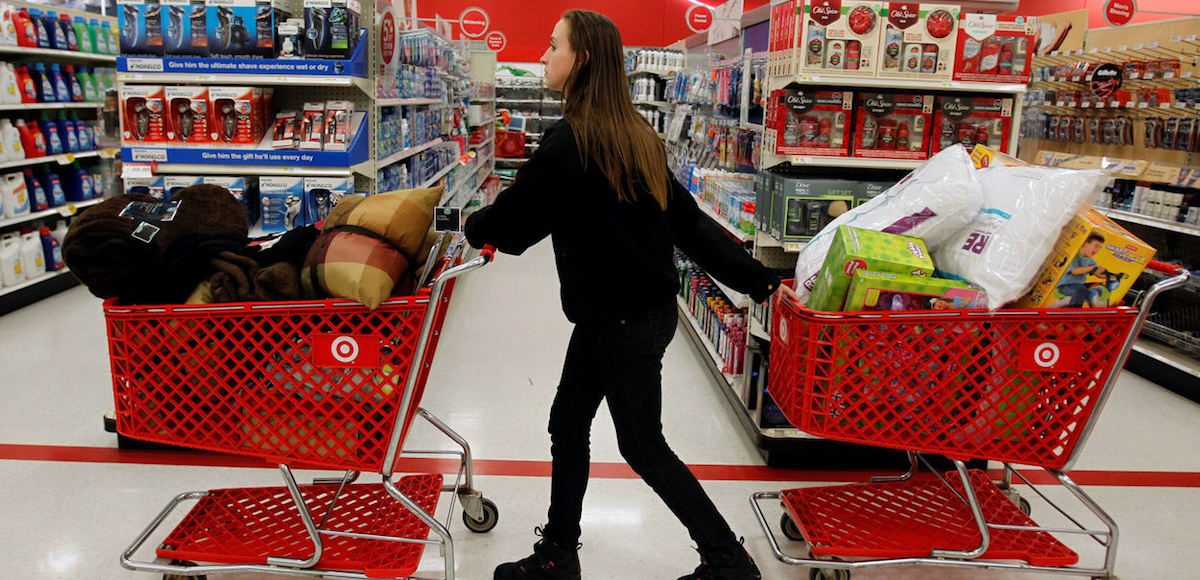

A woman pulls shopping carts through the aisle of a Target store in Torrington, Connecticut November 25, 2011. (Photo: Reuters)
The Survey of Consumers, a closely-watched gauge of consumer sentiment, edged down slightly but still came in at a strong 95.3 despite two devastating hurricanes. In 2005, Hurricane Katrina had a much more severe negative initial impact on the consumer sentiment index, declining by more than 12 points.
“Consumer confidence edged downward in early September due to concerns over the outlook for the national economy,” Richard Curtain, Survey of Consumers chief economist said. Consumers’ assessments of current economic conditions improved, however, with the Current Conditions Index reaching the highest level since November of 2000.”
Still, Hurricanes Harvey and Hurricane Irma had a greater impact on expected economic conditions. Across all interviews in early September, 9% spontaneously mentioned concerns that Harvey, Irma, or both, would have a negative impact on the overall economy. Among those who mentioned the two hurricanes, the Sentiment Index was 80.2, while among those who did not spontaneously mention either, the Sentiment Index remained unchanged from last month at 96.8.
“Given the widespread devastation in Texas and Florida, it is not surprising to find these very negative initial reactions, nor would it be surprising if these negative assessments last longer than following most past hurricanes,” Mr. Curtain added. “While consumers anticipated slight increases in gas prices and a slightly higher overall inflation rate, those concerns were neutralized by the best assessments of their financial situation in more than a decade.”
Mr. Curtain predicted the storms would have a lasting negative impact on consumer sentiment due to underlaying fundamental strength. Further, both 1-year and 5-year inflation expectations are up 1 tenth to 2.7% and 2.6%, respectively.
“Renewed gains in incomes as well as rising home and equity values have acted to counterbalance the negative impacts from the hurricanes,” he added. “Given the current resilience of consumers, recent events are unlikely to derail confidence.”






